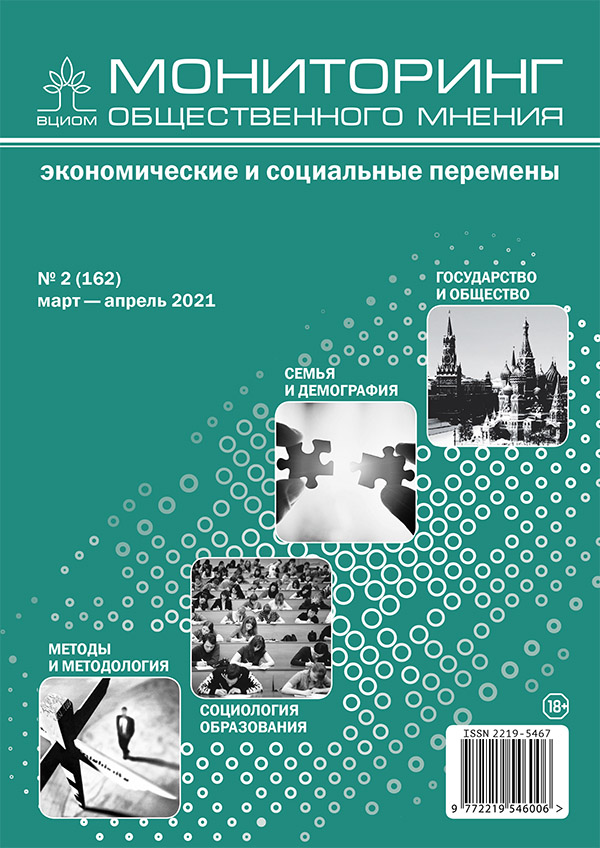Donald Trump and the American Authoritarianism
DOI:
https://doi.org/10.14515/monitoring.2021.2.1940Keywords:
President Trump, presidential election, public opinion, voters’ attitudes, authoritarianism, Republican partyAbstract
The nomination of Donald Trump as the candidate of the Republican Party and his 2016 election victory over the experienced politician Hillary Clinton came as a surprise to a large part of society. Sociological research has shown that Trump exploited widespread ideas of authoritarianism, right-wing conservatism, and racism. He was supported by people of different political views, united by the desire to nominate a strong authoritarian leader who will restore respect to white America, reinforce the working class, stop uncontrolled immigration, and promote traditional values as opposed to new "immoral" norms. This group of people turned out to be united, their authoritarian and racist views took on an aggressive form and led to a willingness to use violence against non-conformists, members of out-groups who do not fit into their ideas about American norms and traditions, and supporters of the Democratic Party and its leaders. These sociologiсal findings were confirmed when supporters of the outgoing president stormed the Capitol in an attempt to force Trump to win the election over Biden.
The paper examines the components of the authoritarian class — right-wing conservative, racist groups and movements, such as the Tea Party movement. The author analyses reasons leading, especially in recent decades, to the growth of authoritarian sentiments and their manifestations in American politics.
Downloads
Published
How to Cite
Issue
Section
License
Copyright (c) 2021 Monitoring of Public Opinion: Economic and Social Changes Journal (Public Opinion Monitoring) ISSN 2219-5467

This work is licensed under a Creative Commons Attribution-NonCommercial-ShareAlike 4.0 International License.






